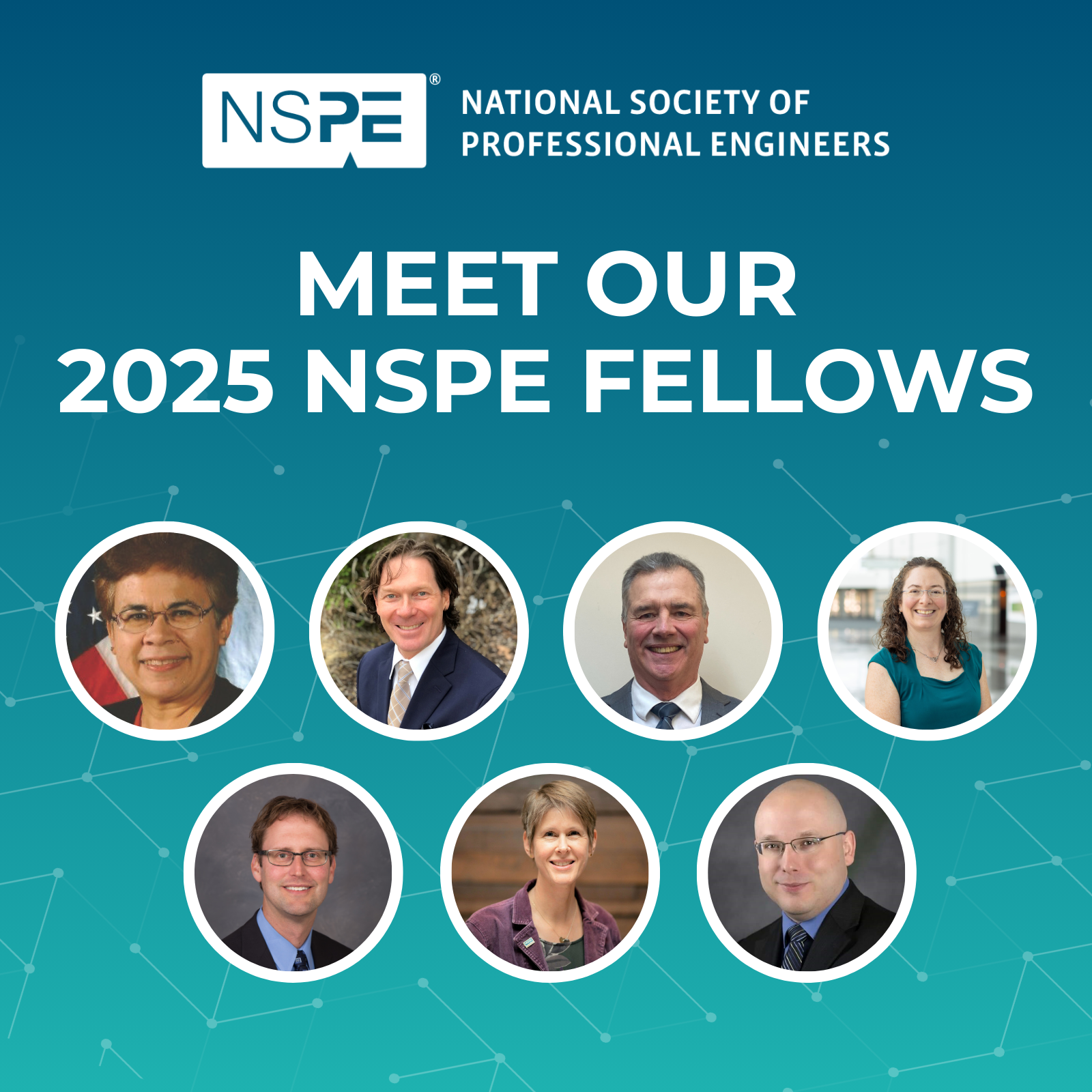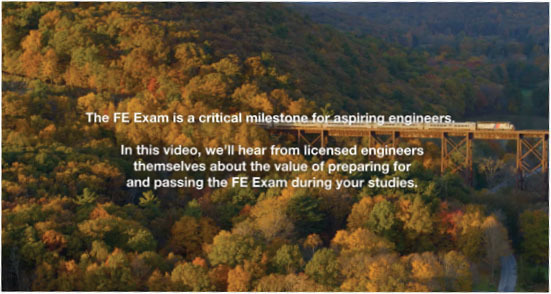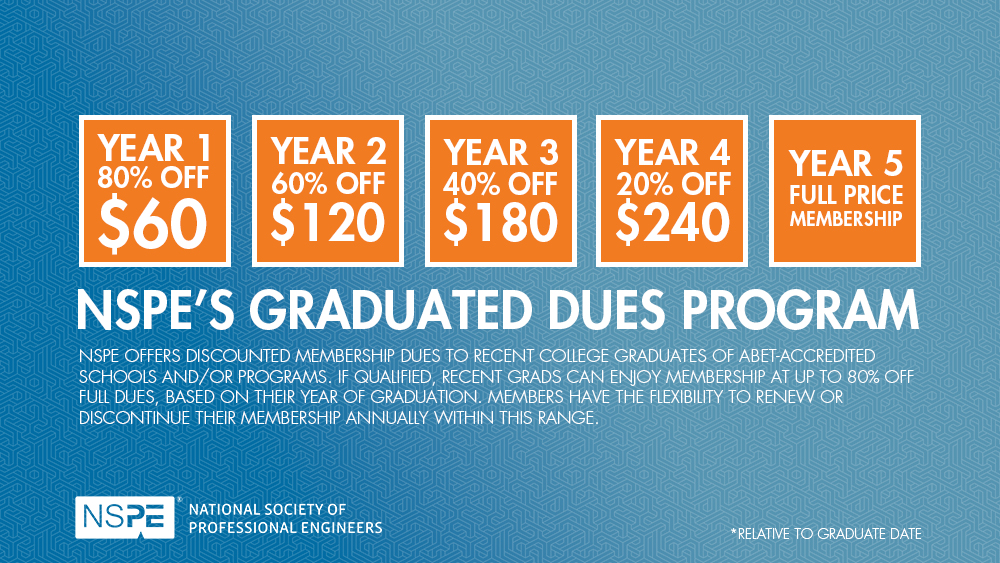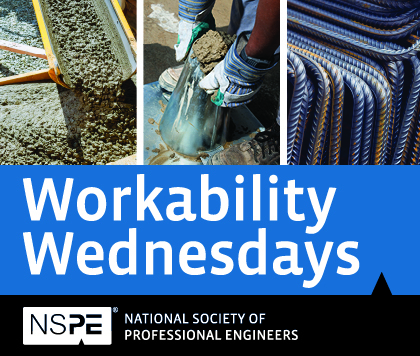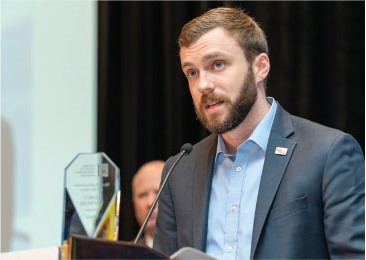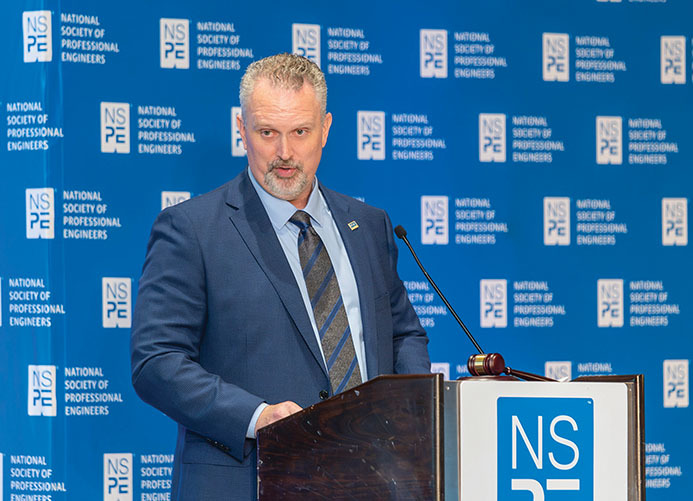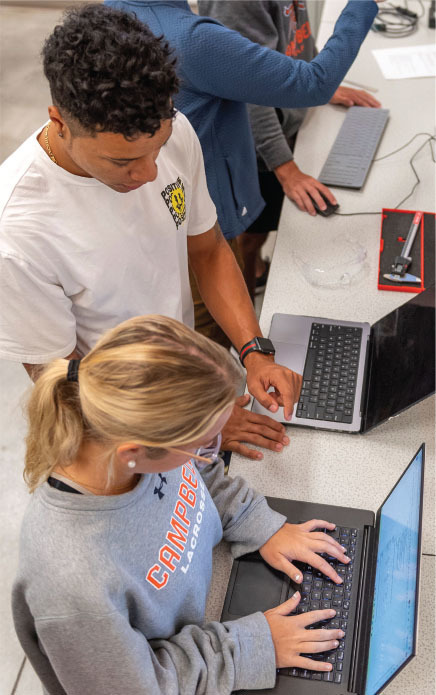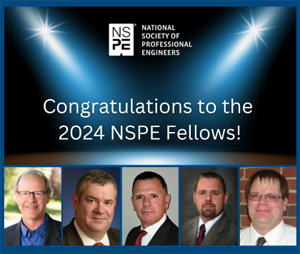November/December 2016
NSPE Today
NSPE Urges Additional Safety Protections in Federal Autonomous Vehicle Guidelines
 The federal government issued its long-awaited automated vehicles policy in September, touting the technology’s life-saving potential. Ninety-four percent of US roadway crashes are caused by human choice or error, according to the Department of Transportation’s National Highway Traffic Safety Administration.
The federal government issued its long-awaited automated vehicles policy in September, touting the technology’s life-saving potential. Ninety-four percent of US roadway crashes are caused by human choice or error, according to the Department of Transportation’s National Highway Traffic Safety Administration.
Although the DOT calls the guidelines “a proactive approach to providing safety assurance,” NSPE believes they fail to address major safety implications and is calling for revisions.
The Society has been a leading voice on the safety of autonomous vehicle technology, recognizing the potential while working to ensure that the same attention to safety and reliability that went into the built transportation infrastructure is incorporated into autonomous vehicles and smart transportation systems. NSPE has advocated for the need to place the public health, safety, and welfare first in autonomous vehicle technology and to require a licensed professional engineer to play a key role in the development, testing, and safety certification of the vehicles.
The new federal policy, which focuses primarily on highly automated vehicles (HAVs) that can take full control of driving, includes four major components:
-
Vehicle performance guidance for automated vehicles. Provides a 15-point safety assessment for the design, development, testing, and deployment of automated vehicles.
-
Model state policy. Distinguishes between federal and state responsibilities for regulation of HAVs and provides recommended policy areas for states to consider in order to help generate a consistent national framework for testing and deployment.
-
Current regulatory tools. Outlines the National Highway Traffic Safety Administration’s current regulatory tools that can be used to accelerate the safe deployment of highly automated vehicles.
- Modern regulatory tools. Identifies potential new regulatory tools and authorities that could help with safe and efficient deployment.
As NSPE stated in a press release, the Society is “disappointed that several major safety implications are still not addressed in the National Highway Traffic Safety Administration’s Federal Automated Vehicles Policy. These guidelines, while not binding, will play a key role in the development and deployment of autonomous vehicles.”
Specifically, NSPE urges the administration to reconsider and revise its policy to address several key issues:
First, there is no requirement for third-party certification of autonomous vehicles and technologies by someone in the decision chain with a duty that puts public safety first and overrides competitive pressures—i.e., a professional engineer. The guidelines allow manufacturers and suppliers to self-certify, the Society emphasizes, eliminating a critical third-party safety check.
In addition, although deployments of autonomous vehicles in controlled environments have had encouraging results, NSPE points out that there is still significant work to be done before human-operated and autonomous vehicles can safely share public roadways. Factors such as weather, pedestrians, and road conditions are highly unpredictable and can change rapidly. The guidelines assume these hurdles will be easily overcome, the Society notes, and don’t provide for adequate safety provisions.
Finally, the enormous ethical implications of deploying autonomous vehicles are not addressed. The guidelines acknowledge that major ethical issues exist, but no proposed methods for addressing them are provided, which, NSPE says, leaves them up to manufacturers and stakeholders. The Society believes that professional engineers should play a key role in this evaluation because their license requires them to hold paramount the public health, safety, and welfare.
The policy released is a product of public input and stakeholder discussions, including open public meetings and solicited comments. NSPE Executive Director Mark Golden presented the Society’s position at a national hearing that gathered input for development of the guidelines. NSPE submitted its formal public comment in May.
The Department of Transportation is soliciting additional comments for 60 days and plans to update the policy annually. But if NSPE’s concerns don’t result in revisions, the Society urges states to address them in rulemaking and manufacturers to incorporate them into their deployment.
Access the policy at www.transportation.gov/AV.
Go to www.nspe.org/resources/issues-and-advocacy/action-issues to learn more about NSPE’s work regarding autonomous vehicles.


 Volunteering at NSPE is a great opportunity to grow your professional network and connect with other leaders in the field.
Volunteering at NSPE is a great opportunity to grow your professional network and connect with other leaders in the field. The National Society of Professional Engineers (NSPE) encourages you to explore the resources to cast your vote on election day:
The National Society of Professional Engineers (NSPE) encourages you to explore the resources to cast your vote on election day: